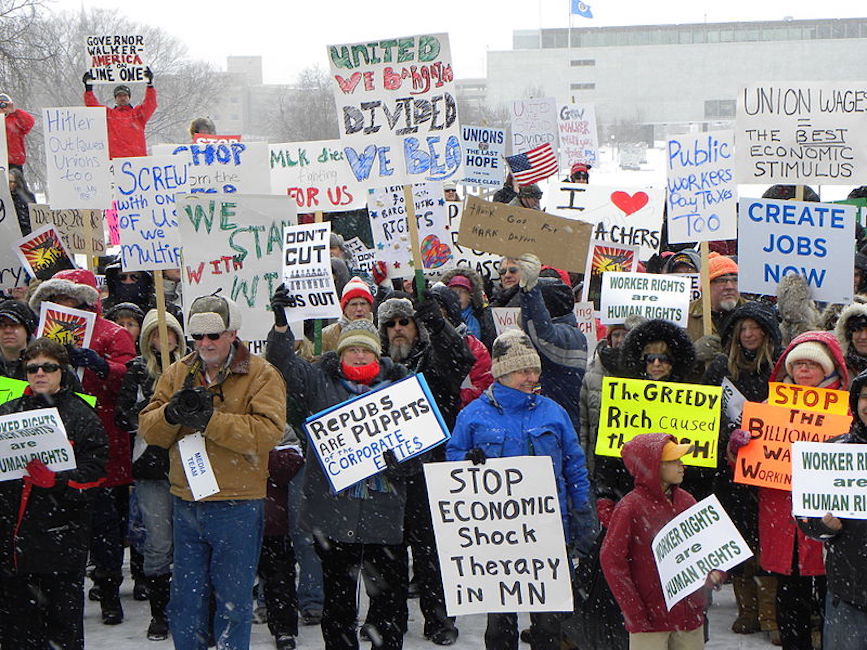It can be burdensome to follow the ins and outs of our legal system. As a nonprofit professional, but also as an attorney, I want to help bridge our understanding of the law so that we can be more proactive about protecting the rights and the services we provide to our clients, as opposed to constantly being reactionary and having to play “catch up” to new laws or policy changes that impact our work. There are many benefits to having a general grasp of legal policy. A better understanding of law and policy is helpful to a nonprofit board that is involved in guiding the programs implemented by their organization. Legal awareness is also beneficial to a communications team that puts out daily messages to its audience, as it requires both a sense of foresight as well as the ability to pivot communications content when necessary. And knowing our legal system allows for greater relationship building with partners as politics often impact many groups simultaneously.
This week the Supreme Court has made a devastating decision that impacts thousands of private nonunion workers. Private nonunion workers can be legally barred from joining together (like in a class action) if they wish to challenge a violation of their worker rights. At face value, this may only seem like an employment or labor issue. But the Supreme Court decision impacts families, immigrants, communities of color, and also women.
The Supreme Court decision involved three cases with plaintiffs alleging that their employers illegally prevented them from taking collective legal action when challenging them. The types of employment law violations are very diverse. Workers may sue an employer for a variety of reasons, such as unpaid wages, discrimination, violation of meal or break laws, dress code issues, or even family/medical leave. As the law is currently applied, employers are able to offer a job to a prospective employee and require that the new employee agree to have all legal disputes be processed at an individual level through arbitration. There are two significant consequences to this. First, while the individual employee may still bring forward a legal challenge, the expense to do so is much higher and heavier to take on alone (compared to a group of people). It could require up to 40 hours of an attorney’s time to fight for $3,000 to $5,000 in unpaid wages. The attorney fees alone cost more than the actual settlement amount. In another example, Justice Ruth Bader Ginsburg wrote that it could cost an employee $200,000 just to bring forward a claim for $1,900 in overtime pay owed to the employee.
The understanding is that if a group of employees have similar issues or complaints, they can then pool their resources to hire legal counsel. This is what a class action is. The second issue then is that class actions are in effect done away with. Class actions shine a light on the illegal practices of an employer. Consider groups of employees who may be claiming religious discrimination, discrimination based on race, or even cases of sexual harassment. If employees agree to arbitration in order to be hired for a job, and given that binding arbitration is not privy to public scrutiny, and often entails non-disclosure provisions, it becomes that much more challenging to garner public support. The individual harassment claim gets swept under the rug. Now, employers are able to settle with individuals in undisclosed amounts. The issue is never brought to the public’s attention and the risk is that an employer may continue the same abuse or bad practice.
If your organization works with any of the communities mentioned in this post, consider how you might send out some words of encouragement. Or perhaps one of your programs team is responding to this very topic and are offering services like a Know Your Rights training. If so, feel free to share it with SCC and we’d be happy to share your resource with our network. If you’ve been convinced that this issue impacts you and your community, discuss with your team how your organization can take action, or show public support for other organizations. You can always reach out to SCC for a consultation about starting or joining a campaign. By supporting one another, we can all grow and contribute to the movement.
If you or someone you know has a legal issue with an employer or question about workplace rights, visit Workplace Fairness online for resources. If you are looking for Spanish language support, or to support an established organization benefiting Latino, immigrant and low-income communities, please visit La Raza Centro Legal based in San Francisco, CA.
This blog post used this New York Times op-ed as a source, as well as this piece from NPR’s All Things Considered.
Photo Credit: Wikimedia Commons

Adam (s/he, him) has a decade of nonprofit program experience working with immigrant and low-income communities. His areas of expertise range from refugee resettlement, legal advocacy, civil rights curriculum, LGBTQ organizing, and HIV education. Adam’s expertise lies in program development, implementation, and assessment. Adam is a foster parent and loves creating art. His small retail shop, The Garden Home, is a medium in which Adam can evolve and share his art.
